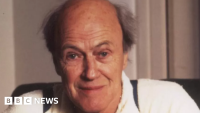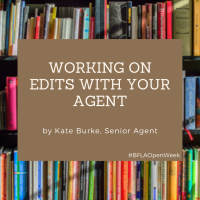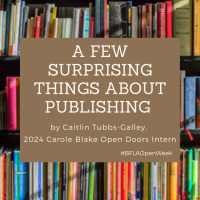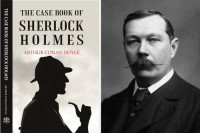
Rejecting writer’s block: rediscovering your writing passion this summer
theboar.org – Monday July 29, 2024

There is a sense of irony about writing whilst talking about writer’s block. But this frustrating struggle has been bothering me all throughout the summer months. Whether it’s a sense of burnout after exam season, or just the warm heat getting to my head, writing can be tough during such a long break. Every budding writer has experienced it, so where does it originate, and how do you get over this tendency found in every creative person?
The phenomenon of writer’s block is defined as the “temporary or lasting failure to put words on paper”, often provoked by worry, academic fatigue, or just the fear that your writing will not be good enough. Due to the fact that writing is such a creative process, relying on flow, passion, and courage, the inability to complete such a task is frustrating for the sufferer. Even successful authors, such as the Franz Kafka, have personal accounts of their frustration, with words in his letters poignantly phrasing that his personal worries and woes led to his despair and battle with creativity.
The antidote for writer’s block is often quite, dare I say, trivial. Many articles have told me to go on a walk, or remove distractions, and whilst I cannot deny this works to an extent, it will not hit the nail on the head. Returning to “the roll, the rise, the carol, the creation”, perhaps pretentiously put by Gerard Manley Hopkins, feels like it comes from within. The art of putting pen to paper is a personal thing, and overcoming that is tough.

Peng Shepherd On Writing A Choose-You-Own-Adventure Speculative Mystery
crimereads.com – Tuesday July 23, 2024

Having just survived writing a speculative mystery novel that allows readers choose what happens at certain points in the story, when CrimReads asked me to write an essay about the experience in the same format, I felt:
Terror
Excitement
TERROR
It’s already hard enough to write a book. But to write one in which there are multiple versions of the main character’s story, all of which make sense, and more importantly, all of which feel just as true, was a whole new beast entirely. What if I’ve bitten off more than I can chew? What if readers think it’s too weird? What if I fail? The writing of the manuscript really was like a microcosm for life.
And this is the thing, both about writing and about life: one of the best parts is getting to make choices about what’s most important, because that’s how you define yourself as “you”—and one of the hardest parts is having to make choices about what’s most important, because you might get it wrong. And if you do, how do you live with that?
Nostalgia
No Good Options
NOSTALGIA
Many of us are familiar with the children’s Choose Your Own Adventure series of books from our childhood, in which you start as a blank “You” canvas and are immediately launched into an outlandishly fun adventure in outer space or on the open seas or deep in some jungle.
Why did we all love that series so much as kids? What was it about those paperbacks that could transport us somewhere else for entire afternoons at a time? My personal theory is that choice is exciting to children because at that age, you almost never get to make them. Most of your life is dictated by your parents or your teachers, and so any opportunity to exercise some autonomy, no matter how trivial, is thrilling. If you put on a blue shirt for bed, will the aliens invade Earth? If you have the granola instead of the chocolate puffs, will a portal open in your basement?
But when you’re an adult, the game changes. Now you have entirely too much choice, none of which leads to extraterrestrials or SCUBA diving for lost treasure in the Bermuda Triangle. The responsibilities can be so much, we might almost wish that sometimes, the pressure of choosing could briefly be taken away from us again.
Then it was.
You can only go to “No Good Options”

Thoughts on writer’s block and other first word problems
auburn-reporter.com – Sunday July 21, 2024

“I once heard an anecdote about a writer who’d spent a week in his apartment working on his novel, without a break. Compassionate friends finally dragged him away to dinner for the sake of sanity, and for a much needed breather.
“What did you get done this week?” the writer’s chums inquired.
“In the mornings, I put in a comma,” he answered gloomily, “and at night, I took it out again.”
Perhaps the guy had a creative block, who knows? But I’ll wager he’d also neither read nor followed the great Ray Bradbury’s advice in his book, “Zen in the Art of Writing.”
“This afternoon, burn down the house,” Bradbury wrote. “Tomorrow, pour critical water upon the simmering coals.”
In other words: don’t judge what you’re writing while you’re at it. Reserve your critiques for the editing phase. That’s the time to correct errors.
Of course, Bradbury is saying, the creative and judgement moods must be separated. Failing to recognize this is one sure way to get nothing done but spin your wheels, like our unfortunate writer with his vexing comma. When the creative fire is under you, go nuts.

Working with Roald Dahl helped me find Harry Potter
bbc.co.uk – Saturday July 20, 2024

he publisher who discovered Harry Potter has said working with Cardiff-born children's author Roald Dahl helped him see the potential in JK Rowling's novel.
Barry Cunningham has worked with some of the most well-known children's authors in the world.
He said Roald Dahl was "a tall, quite grumpy, rather heroic, very frank author" who was adored by children.
"He was occasionally extremely grumpy and short tempered with adults, but never with children," he told the Books That Made Me programme on BBC Radio Wales.
Roald Dahl was born on 13 September 1916 in the Llandaff area of the Welsh capital, and died on 23 November 1990, aged 74.
As marketing director for Puffin, Mr Cunningham travelled around the country with him.
It was during one of those marketing trips that Dahl revealed what he believed was the secret to the success of his books.

J K Rowling and the magic of her writing ‘shed’
spearswms.com – Tuesday July 16, 2024

Authors have traditionally been seen as 'gardeners' or 'architects' but J K Rowling puts forward a new metaphor for the writing process
‘Are you an architect or a gardener?’ That has become one of my go-to questions for authors of fiction. The framing is that of the fantasy writer George R R Martin, who says that all writers fall into one of the two categories: architects plan meticulously and know exactly how the story is going to be shaped before they write a single sentence. Gardeners just drop a seed in the ground, water it, and wait to see how it’s going to grow.
You might be surprised by how many literary writers are architects – William Boyd always knows exactly how his story is going to end – and how many genre writers (whose twisty plots might seem to imply a bit of planning) are gardeners. Maybe the most successful thriller writer in the language, Lee Child, absolutely makes it up as he goes along, and refuses on principle to go back and tinker with the story: if he writes himself into what looks like a dead-end in the plot, he enjoys the challenge of writing himself out of it. I once heard (though I can’t vouch for it) that Agatha Christie used to wait until the closing pages of the book before deciding who the murderer was.
E M Forster, who liked to complain that his characters got out of hand and told him what to do: gardener. Vladimir Nabokov, asked whether he shared Forster’s struggles with unruly characters, responded with magnificent hauteur: ‘My knowledge of Mr Forster’s works is limited to one novel, which I dislike; and anyway, it was not he who fathered that trite little whimsy about characters getting out of hand […] My characters are galley slaves.’ Architect, then.

Why so few men take up the pen
thecritic.co.uk – Sunday July 14, 2024

With publishing now such a female-dominated industry, it’s no surprise that there are so few men writing fiction
I’ve just finished a very unusual book: Caledonian Road by Andrew O’Hagan. Its themes, characters and the author’s style of writing are all exceptionally good but that’s not why this book is unusual. It’s more because it’s a new and critically acclaimed work of literary fiction written by a man.
If you’ve seen the inside of any bookshop in the last few years, you’ll know how rare this has become. The vast majority of new fiction and its most praised and promoted authors are female. And yet the principal reason for this is seldom discussed.
So let’s discuss it, shall we? Let’s bring the elephant into the room. The publishing industry is suffering from a damaging gender imbalance. According to a recent UK publishers’ survey, 83 per cent of marketing, 92 per cent of publicity and 78 per cent of editorial staff in Britain’s publishing industry are female. Taking an average of those three figures suggests an industry whose employees are 84 per cent female.

Writing Suspenseful Scenes: Techniques for Keeping Readers on the Edge of Their Seats
rollingstone.com – Saturday July 13, 2024

IN THE REALM of literature, few elements captivate readers quite like a masterfully crafted suspenseful scene. It’s the literary equivalent of a roller coaster ride — heart-pounding, palm-sweating and utterly addictive. But what techniques do authors employ to create these nail-biting moments that keep readers glued to the page? Let’s delve into the world of literary suspense and uncover the secrets behind keeping readers on the edge of their seats.
At its core, suspense is about the art of withholding information. Like a skilled magician, authors must constantly misdirect, hint and tease. The real magic happens in the reader’s mind as they attempt to piece together the puzzle. Pacing plays a crucial role in this dance between revelation and concealment. The key is to provide just enough information to keep readers hooked, but not so much that they can predict what’s coming next.
One technique that many suspense writers swear by is the slow burn. This involves gradually increasing tension throughout a scene or chapter, ratcheting up the stakes bit by bit until the reader is practically squirming with anticipation. Think of it as slowly turning up the heat on a pot of water. You start with a simmer, then gradually increase the temperature. By the time you reach the boiling point, the reader is fully invested and desperate to know what happens next.

BFLA Open Week: Working on Edits with Your Agent
blakefriedmann.co.uk – Thursday July 11, 2024

Every agent – and agency – is different and, ultimately, who you sign with has to be someone you click on a personal and professional level, and who you think will do the best by your writing and your career. Some agents work very closely editorially with clients and some don’t, but I’m not here to judge anyone! All I can say is that, as a former editor with a decade of experience working for several publishers, I do a lot of editorial work with my clients, particularly with debut writers, but this process can continue beyond that. This means working closely with them on several drafts of their novels before submitting them to publishers, helping them to shape outlines for future projects as well as brainstorming titles and pitch lines, and these are processes I really enjoy!

BFLA Open Week: A Few Surprising Things About Publishing
blakefriedmann.co.uk – Tuesday July 9, 2024

On my first day interning at Blake Friedmann, I realised just how much I didn’t know about the publishing industry. Over just two weeks, I learnt so much. It was life-changing – to my career in publishing, and to my confidence as a young professional. The Carole Blake Open Doors Project sets a major example for the rest of the industry as does Blake Friedmann as an agency themselves. The internship was proactive, inclusive, exciting, and impressively tailored to my interests. I could probably talk about it all day, but instead I’d like to share a few things I learnt that may be helpful to writers and aspiring publishing professionals alike.

"It Shouldn't Be Printed At All. It Should Be Burnt" — 23 Books Writers Regret Writing
buzzfeed.com – Sunday July 7, 2024

We've recently written about inventors who regretted their inventions, as well as directors who cringed at (and even disowned) their own movies. So, we thought we'd share some examples of authors who grew to regret their own titles, too. Here are 23 examples:
1. Arthur Conan Doyle grew to hate Sherlock Holmes, eventually killing his beloved character off.
Historian Lucy Worsley told The Guardian that Sherlock eventually just became a cash cow for Doyle, who also wrote far-less-read historical novels. He killed off Holmes when he made him enough money, but brought him back ten years later for over a million dollars — "he would have hated the fact that today, 93 years after his death, his historical novels lie unread, while his ‘cheap’ – but beloved – detective lives forever on our screens," Worsley says.
Get the free newsletter | Submit a news item or article | Get Writers' News for your website





